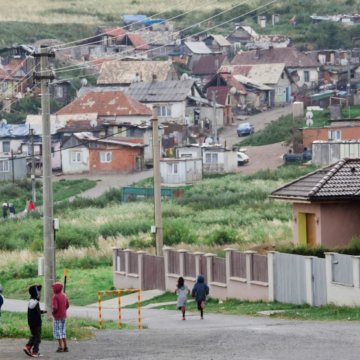- About
- Topics
- Story
- In-Depth
- Picks
- Opinion
- News
- Donate
- Signup for our newsletterOur Editors' Best Picks.Send
Read, Debate: Engage.
| topic: | Discrimination |
|---|---|
| located: | Slovakia |
| editor: | Magdalena Rojo |
A few weeks ago, the Slovak government ordered collective quarantine for about 6,200 Roma in five settlements after a few tens of returning Roma migrants tested positive for COVID-19. Human rights activists as well as humanitarian workers that had been working in the settlements, long before the government started testing, were critical of this move.
Some are saying that testing came too late, even though the probability that the virus would spread in the excluded communities which have low hygienic standards was very high. Even more so, various Roma workers returned from Great Britain where they searched for work. Migrants were the first ones to be tested. Until now the selection of those to be tested has been based on previous travel outside of Slovakia.
Initially, Roma who tested positive were supposed to be quarantined in closed schools or kindergartens. However, this never took place. Instead, whole settlements were enclosed. Various NGOs point at the fact that experiences from refugee camps show that enclosed settlements should be divided into zones to reduce the risk of infecting the healthy population. However, some Roma state that they did not get proper information as to how the medical healthcare would be provided and how their basic needs would be fulfilled. Fear was spreading through the marginalised communities.
The reaction of the Slovak Prime Minister, Igor Matovic, to the criticism was done through a Facebook post calling human rights activists to come to the field and risk their lives in helping in the settlements. However, they have been doing it since the inception of the pandemic. Many organisations are delivering face-masks and other hygienic necessities. They have also been preparing ways for children that have no internet connection in their houses to continue studying online as schools are closed. Others assist municipalities in accessing communities and their health.
The rhetoric that is directed against the non-governmental sector can be dangerous in the times when NGOs are filling a gap the state is not able to fill. The first quarantined settlement was opened a few days ago, yet the government still does not have a proper plan in regards to testing the rest of approximately 600 settlements that need a specific approach to the health issues due to the health conditions of their residents.
So far, more than 100 Roma were tested. It is also not clear yet what would be the strategy if more settlements turn out to be COVID-19 hotspots. One thing is sure though, the government will not find the response without cooperatiing with NGOs and local municipalities where the settlements are located. Cooperation, ultimately, is the key to tackle the COVID-19 pandemic. More so in the case of marginalised communities.
Image by Nikola Đorđević

